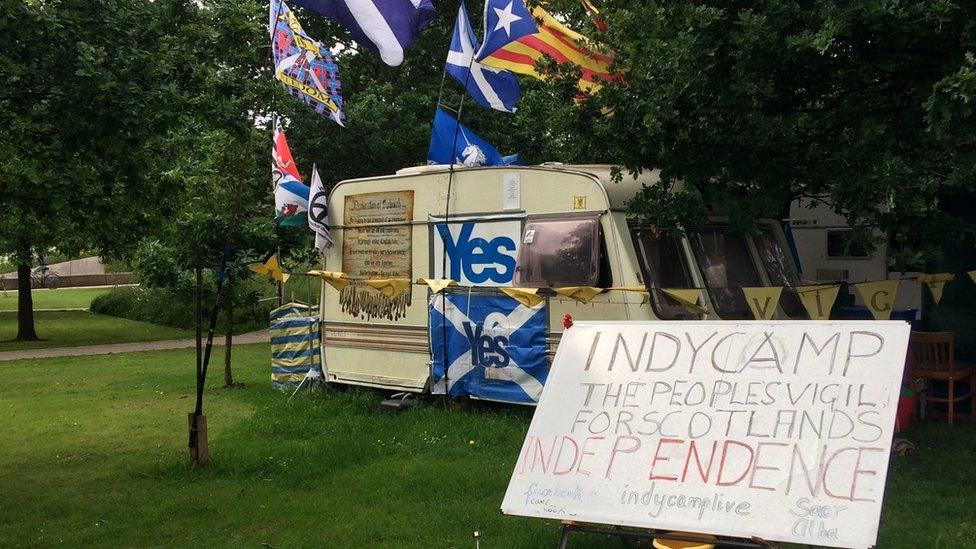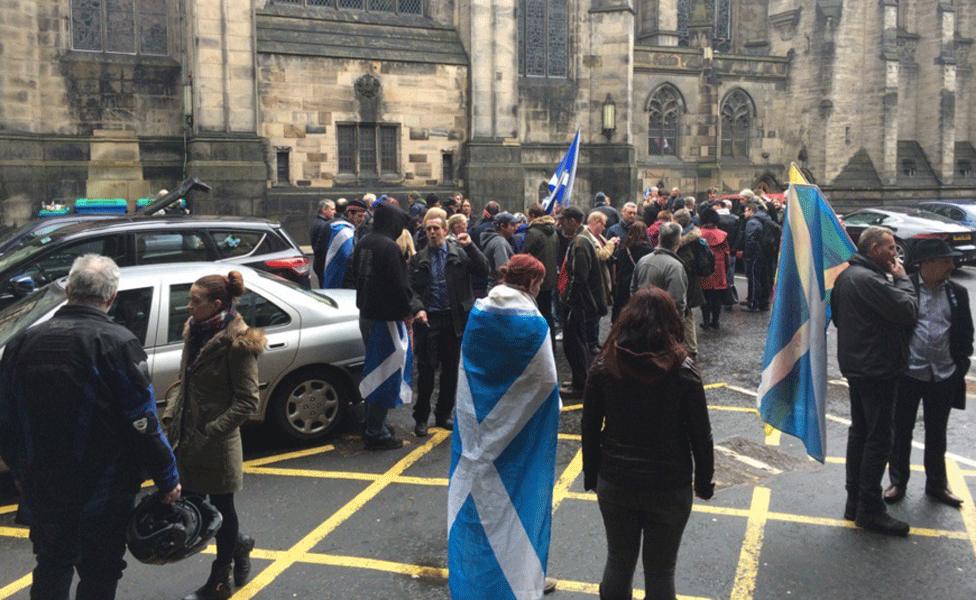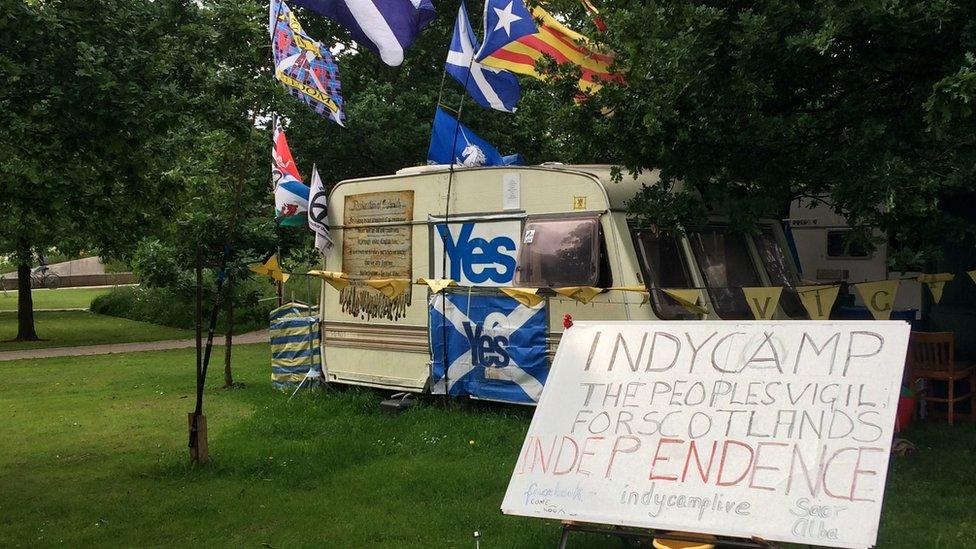IndyCamp loses legal fight against Holyrood eviction
- Published

The independence camp was set up in November 2015
A group of independence campaigners have lost their legal fight against eviction from their Holyrood camp.
The Scottish Parliament took the IndyCamp group to court after they refused to end their occupation of the parliamentary estate.
After a seven-month court battle, Lord Turnbull ruled, external that it would not breach human rights laws to have the camp evicted.
The campers said they would appeal, hoping to stay in the meantime.
In an email to MSPs, the Scottish Parliament said officials would "seek discussions" with the campers to "agree plans for a peaceful removal of the camp".
The IndyCamp was set up outside the parliament in November 2015, with the campers pledging to remain in place until Scotland is declared independent.
The parliament ordered them to leave, saying they were camping without permission, taking up space others could be using and endangering the neutrality of the parliamentary estate,
A lengthy legal battle ensued, with the campers putting forward a series of unusual arguments based on the Declaration of Arbroath, the 1707 Act of Union and the second coming of Christ.
Respondents also attempted to call the Queen as a witness and accused Lord Turnbull of "blasphemy", but the case ultimately came down to a question of human rights; whether evicting the campers would be a proportionate response with regard to their human rights.

Legal arguments about the camp were heard at the Court of Session
After hearing legal arguments on this point, Lord Turnbull criticised their approach as "selfish or even arrogant", saying the campers had shown "open disregard" for others.
He said the order sought by parliament, for eviction, would not "substantially impair the ability to protest at the grounds of the Scottish Parliament".
The judge added that the campers did not have an "unfettered right" to hold a permanent vigil outside Holyrood, saying he had come down "firmly in favour" of the parliament's view that eviction would be proportionate.
'Sad day'
Camper Dean Halliday told the BBC that it was a "sad day for Scotland", saying the group would appeal against the judgement.
He described the campers as "middle aged tea drinkers" who represent the "Yes" movement for independence, saying they had gathered outside Holyrood in response to Nicola Sturgeon asking for the "voice of the people".
A spokeswoman for the Scottish Parliament said: "The corporate body regrets that it was forced to take this action, however, given the protesters refusal to vacate the land or consider alternative options to make their protest, we were left with no choice.
"We took this action to protect the rights of all those who wish to use and access Parliament land and we welcome Lord Turnbull's judgement in our favour today."
The parliament will now seek discussions with the campers to remove the camp in a "planned and orderly way", saying they remained open to "exploring alternative options" for the group to "express their views while ensuring the land remains available for the use of others".
Parliamentary corporate body member Andy Wightman said he hoped the campers would leave voluntarily, but said "we will take steps" to have them removed if they do not.
The Green MSP, a supporter of Scottish independence, said the issue was "irrelevant" to the IndyCamp case. He added that parliament was "bound to defend its interests", and said it was "proportionate and right" to take action against the camp.
- Published2 July 2016

- Published30 June 2016

- Published29 June 2016
